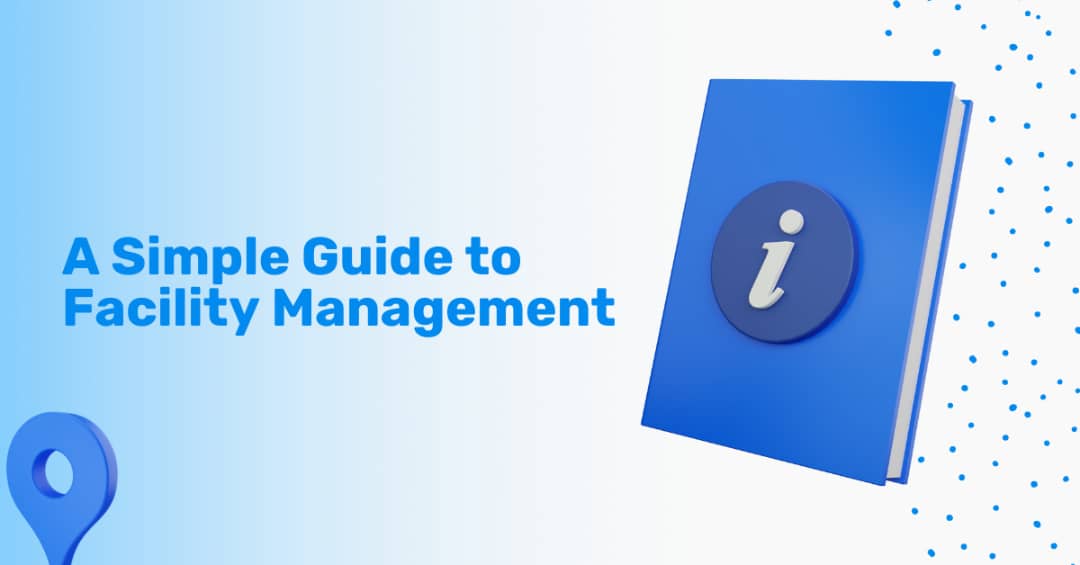Table of Contents
Introduction
When you think about facility management, what comes to mind?
Prior to my having a better understanding about the term, I used to picture facility managers as people walking around malls or hospitals with walkie-talkies, checking elevators, escalators, and lights. That was my limited view because that was the only time I saw someone actively managing assets.
Maybe your idea of facility management is more polished than mine was. Either way, let’s dive into what facility managers really do, not just within the context of facility management in Nigeria or Africa, but the world at large.
What is Facility Management?
Facility management is about taking care of an organization’s physical spaces: buildings, equipment, utilities, and more to ensure everything functions well, safely, and cost-effectively.
Just as you would tidy up and take care of your own space, facility managers treat the properties under their care with the same sense of responsibility.
They manage everything within the facility, from assets to equipment, making sure everything runs smoothly.
Their duties include maintaining and repairing systems, ensuring that all visitors are safe, and keeping everything in top shape.
Essentially, facility managers are the caretakers who ensure that the environments we work and visit are safe, efficient, and well-maintained.
Types of Facility Management Services
Facility management comes in different forms, depending on what needs to be managed:
1. Hard Facility Management (Hard FM):
This involves taking care of physical assets like buildings, HVAC systems, and elevators. Think of it as the technical side—maintenance and repairs.
2. Soft Facility Management (Soft FM):
Here, the focus is on services like cleaning, security, and landscaping—things that keep the environment pleasant and functional for everyone.
3. Integrated Facility Management (IFM):
This combines Hard and Soft FM, with one provider managing everything for smoother operations.
4. Outsourced Facility Management:
Companies often hand over their facility management duties to experts, letting them focus on their core business.
5. In-House Facility Management:
Some companies prefer to manage everything internally, keeping full control over operations.
6. Strategic Facility Management:
This aligns facility management with the organization’s long-term goals, ensuring the space grows and adapts as the company evolves.
7. Tactical Facility Management:
Focuses on day-to-day operations—like handling service requests and making sure everything runs smoothly.
8. Operational Facility Management:
This deals with executing plans and supervising projects to ensure compliance with regulations.
9. Technical Facility Management:
Concentrates on managing complex technical systems like plumbing, electrical systems, and more.
What is the importance of Facility Management?
Answering the question “What is the purpose of Facility Management?” also answers questions such as “ Role of Facility Management”, “functions of Facility Management,” or “Main Tasks of Facility Management.”
Do you own a real estate company, hospital, shopping complex, or other physical property?
Here are a few reasons why it’s essential for your properties.
1. Operational Efficiency:
Facility management ensures the environment supports an organisation’s day-to-day activities. By maintaining equipment and services, everything runs smoothly, keeping the business on track.
2. Resource Utilisation:
Facility managers maximize the use of resources like space, energy, and equipment. This leads to cost savings and better performance across the board.
3. Safety of Occupants:
Facility managers plan for safety and future needs, like accommodating growth or adapting to new technologies, to keep everyone safe and ensure a secure environment.
4. Oversee Maintenance Activities:
Facility management handles maintenance to ensure that buildings and equipment are always in top shape, avoiding costly breakdowns.
5. Risk Mitigation:
By planning for emergencies and implementing safety protocols, facility managers help prevent disruptions and protect occupants.
6. Cost Management:
By optimising resources within the facility and avoiding waste, facility management helps control costs and manage budgets effectively.
In summary, facility management helps create a productive, safe, and cost-effective environment that supports the organization’s goals.
This is a system Facility managers often use this process to boost productivity in the workspace by organizing and maintaining facilities efficiently.
Have you heard about the 5s of facility management?
A system Facility managers often use this process to boost productivity in the workspace by organizing and maintaining facilities efficiently.

The 5S of Facility Management
1. Sort (Seiri):
This step involves removing items and equipment that are no longer needed from their original locations, keeping only what’s necessary.
2. Set In Order (Seiton):
Here, tools and equipment are arranged in designated spots, making everything easy to find and access.
3. Shine (Seiso):
This step is about cleaning and maintaining the space. A clean environment supports better organization and productivity.
4. Standardising (Seiketsu):
Standardisation means creating uniform practices for organizing, cleaning, and maintaining the facilities. It ensures that tasks are done consistently and efficiently.
5. Sustain (Shitsuke):
Sustaining is about keeping up with the improvements and continually encouraging the team to follow the 5S principles and adopt new methods.
Industries That Greatly Benefit from Facility Management
Here are some industries that greatly benefit from facility management:
Commercial Real Estate, Healthcare, Educational institutions, Retail spaces, Banks and financial institutions, Government facilities, Airports, Data Centers and IT facilities, train stations and transportation, Entertainment venues, stadiums and event spaces, Pharmaceutical companies, Automobile manufacturing facilities, and Telecommunications facilities.
These are just a few examples, but in reality, nearly every industry that relies on physical facilities and assets benefits from facility management to optimise operations, enhance safety, maintain functionality, and create optimal environments for their operations and occupants.
Conclusion
Facility management plays a crucial role in keeping operations running smoothly, ensuring safety, and contributing to overall organizational success.
To navigate the complexities of this field, effective tools are essential. Facility Management Software helps managers efficiently manage resources, optimize maintenance, and improve overall facility performance.
Instanta Facility Management Software
Instanta Facility Software is a simple, mobile, and web-friendly tool designed to help facility managers work more efficiently. It allows managers to handle tasks, track performance, and keep everything running smoothly from one central platform.
With Instanta, managers can make quick decisions, adapt to changes, and maintain high standards. By making operations easier and giving a clear overview of facility performance, Instanta helps managers stay on top of their responsibilities and achieve better results.





















